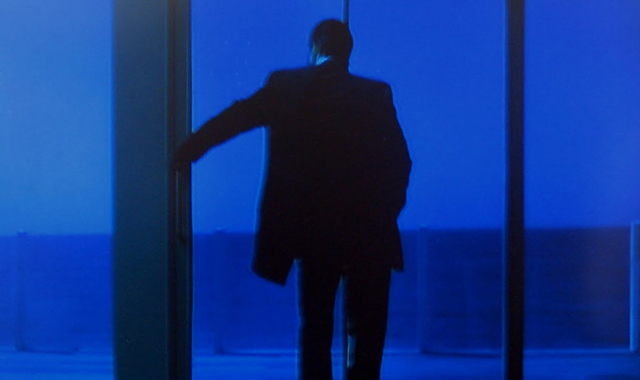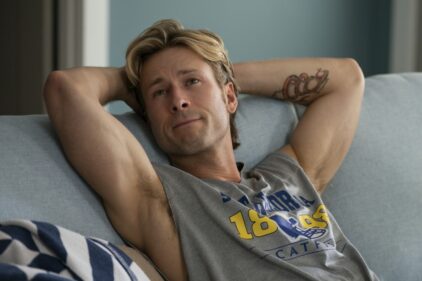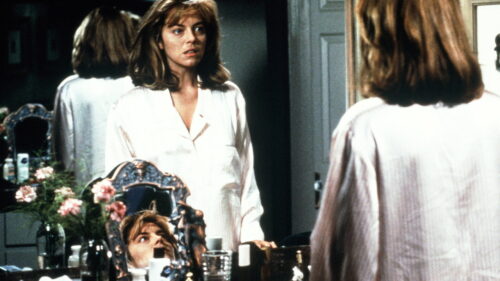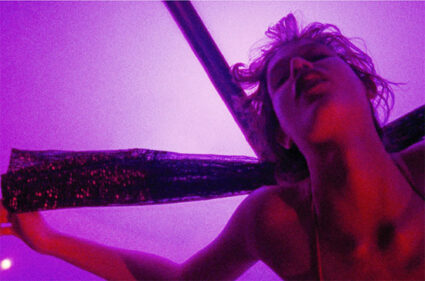Roger Ebert, this site’s co-founder, loved visiting the Conference on World Affairs at the University of Colorado,
Boulder, and conducting “Cinema Interruptus.” Renamed “Ebert
Interruptus,” it is a shot-by-shot analysis of a single film spread out over a week. Roger called it “democracy in the dark” because, although he
presided over it, anyone in the audience could call out “Stop” to have
the frame frozen so they could ask a question or make a comment. Roger oversaw this extraordinary happening through 2006 when he lost his voice to cancer. He returned to the Conference on World Affairs several times
after that and conducted sessions with a computerized voice, in the company of such directors as Werner Herzog and Ramin Bahrani.
Last year, the conference’s organizers asked if I would step into Roger’s shoes and do “Ebert Interruptus” at the 2016 conference. I agreed and chose my movie, Michael Mann’s 1995 crime epic “Heat.” I spoke with conference organizers, filled out questionnaires, and made arrangements to have an assistant help me with media management: gathering clips from films by Mann and other directors that might theoretically be brought up during the screening, which unfolds in five three-hour sessions spread out over five consecutive days.
My name was in the program, everything was set.
Then, sometime Thursday, I got a message on Twitter asking me if I was knew what was going on behind the scenes at the Conference on World Affairs.
I did not.
The CWA drama is too complex to lay out in one blog post, so I’ll point you to a few articles in the Boulder community newspaper Daily Camera. Suffice it to say that there’s disagreement over the present and future of the Conference on World Affairs and the leadership of its director, John Griffin. In fact the disagreement is so sharp that 85 people signed an editorial stating that they would not return to the CWA under its current leadership. The list included Chaz Ebert, my publisher and this site’s co-founder; storyteller Liz Weir; playwright Terrence McNally; musician and activist Jello Biafra; editorial writer Richard Aregood, who worked alongside me at the Star-Ledger of Newark for eleven years, and film critic and filmmaker Jim Emerson, who I’ve known since 2006.
Thirty-nine individuals associated with the Conference sent a letter last year to the university’s chancellor, Philip DeStefano. It read in part: “It seems the combination of unfamiliarity with the conference and
the understandable concerns over campus-wide funding challenges have
caused … administrators to mistakenly consider the CWA as something
that must be narrowly defined, repaired, regulated and remade into just
another institutionalized, sterile conference.”
I’ve never been to the CWA. I have no opinion on what it has traditionally been or should be. I am an interloper.
Still: after speaking with a number of people who have long histories with the CWA, I’ve decided that I cannot in good conscience endorse the event at this moment by adding my name to the program. I try not to ask myself “What would Roger Ebert do?” in every situation,
because I am not Roger. But in this case it was unavoidable. The answer
was clear: Roger would not attend.
Too many people I respect have dissociated themselves from the Conference because they do not have faith in its current leadership. After my participation was publicly announced by the CWA on March 3, none of them sought me out to urge me to cancel, or even to influence me in that direction, and I appreciate that. Nevertheless, I believe I must stand with them.
My name still appears in the program, but I will not be there. I’ve talked to a CWA administrator about my decision and told her that, should this situation come to a resolution that is satisfactory for both sides, I will consider attending in the future as a guest or speaker.
At the moment, I am trying to find a filmmaker or film critic with no strong personal ties to anyone on either side of the event who might be able to fill in for me as the host of “Ebert Interruptus.”
And in case you were wondering: in the future, when anyone asks me to attend an event, I’m not going to say yes until after I’ve Googled the organization’s name and the words “scandal” or “controversy.”












